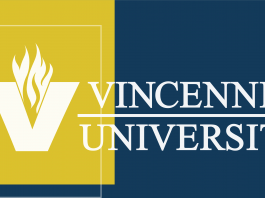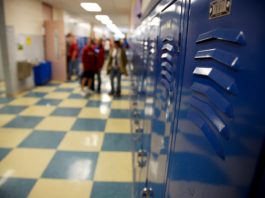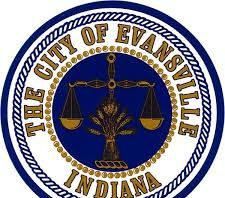Vouchers. Public Education. Accountability. Teacher Pay. Government Mandates
Dear Veda Morgan and Chris Rickett:
Now that I have your attention, please be aware of three bills in the Indiana General Assembly now that will hurt Indiana’s economy by damaging access to quality K-12 education. If passed, House Bill 1005, and Senate bills 412 and 413 will harm Indiana’s ability to attract new jobs and economic investment because of continued lack of equity in education for 90 percent of students.
The three bills strip millions of dollars from open admission public schools and provide those funds to selective admission School Choice private/parochial schools. And new this year, education savings accounts (ESAs) will begin to give up to $7,000 with very few restrictions to qualifying home school families to use for a broad array of ancillary
educational expenses including unaccredited, unsupervised, unassessed home schooling. This is a race to the bottom for Indiana.
Advertised as an efficient use of state education funds and promoted as holding public schools to account, the three bills’ selective funding mechanisms help only 10 percent of Indiana’s K-12 students. Legislators are taking that funding from the remaining 90 percent of children who attend Indiana K-12 public schools.
These same public schools have been critiqued, taunted, mandated and squeezed by state interference since 2010, but they are Indiana’s only schools that welcome, enroll and educate all students — from the genius to the most profoundly disabled or traumatized. Yes, public schools struggle to assure true equity, but that is largely because so much money is being stripped to fund inequitable types of schools.
It bears repeating: The General Assembly takes money away from public schools while requiring these same schools to enroll and educate every child to state-mandated excellence. At the same time, the General Assembly gives ever more money to selective admission School Choice private/parochial schools and homeschools and applauds them for doing a great job with a relatively small number of pre-selected kids.
The admission guidelines in various private and parochial schools’ online handbooks show that these schools select their students. Students and their families apply to School Choice schools, they do not simply enroll.
Last week I found two local (Evansville, IN) online parochial school handbooks with admission policies that say incoming transfer applicant-students must show the principal their previous report cards and standardized tests results. “These will be reviewed to determine whether the program at XXXX-School will meet the educational needs of the student,†the booklet says. “If after admission the education and/or behavioral needs of the student exceed what is reasonable, the student may need to be separated from the XXXXX School.â€Â (emphasis theirs)
When the stakes are high and monetary, it is not surprising that private and parochial School Choice voucher schools encourage complex students to consider other schools that can better meet unreasonable extra needs like transportation, most special education, English language learner classes, meal assistance, tolerating and helping students and parents with mental illness or who won’t sign a code of conduct, and accepting overly-independent, emotionally or physically disabled, exceptionally high intellect, or LGBTQ students.Â
Stakes are high. Rankings matter. Voucher-eligible private/parochial schools naturally encourage students-in-need-of-services to find an option that can meet those needs. Selective admission K-12 policies contribute to artificially improve performance results of selective admission schools, and artificially stifle diversity in those schools. This is all posturing for a pat-on-the-back and more money from the State, but it hurts Indiana workforce development overall.
With the three bills in the Statehouse now, these schools may get more voucher money. Public schools will get less. Guess which school-type will get the most criticism about performance? Guess what this does to our economy?
Public schools produce an enormous number of MBAs, PhDs, MFAs, JDs, MDs and DDSs. They produce Indiana’s middle class, too. Draining funds from these schools is already creating a dearth of high to middle income tradesmen and women; senior and middle managers; and health, service, and industrial technicians. A state cannot exist without people who can read a blood pressure cuff, install a toilet, and clean our teeth. Public schools successfully teach our plumbers, electricians, carpenters, fireman and policeman; doctors, dentists, dental hygienists and certified nursing assistants; state senators, bishops, CEOS, and ministers. Without well paid teachers and complete funding for the full array of diverse students they instruct, our public schools cannot do the job required.Â
No part of HB1005 or Senate bills 412 and 413 helps Indiana workforce development. These bills are a direct threat to the Hoosier economy. Employers, employees, taxpayers and government officials need to carefully consider the repercussions for Indiana’s workforce development should vouchers expand and ESAs are allowed in our state.
Sincerely,
Ann M Ennis
Evansville, Indiana





This says it all 🙁 Have to include LGBTQ students as well 🙁
“When the stakes are high and monetary, it is not surprising that private and parochial School Choice voucher schools encourage complex students to consider other schools that can better meet unreasonable extra needs like transportation, most special education, English language learner classes, meal assistance, tolerating and helping students and parents with mental illness or who won’t sign a code of conduct, and accepting overly-independent, emotionally or physically disabled, exceptionally high intellect, or LGBTQ students. ” Got to get all of the Democrat talking points in there ! BAH 🙁
Comments are closed.